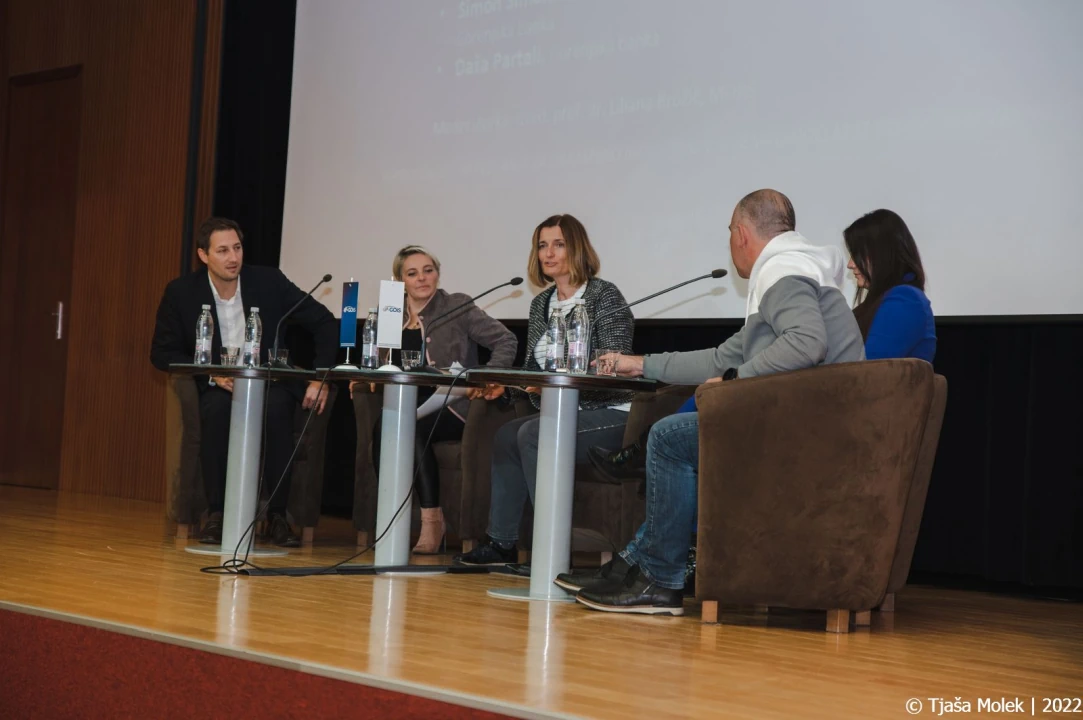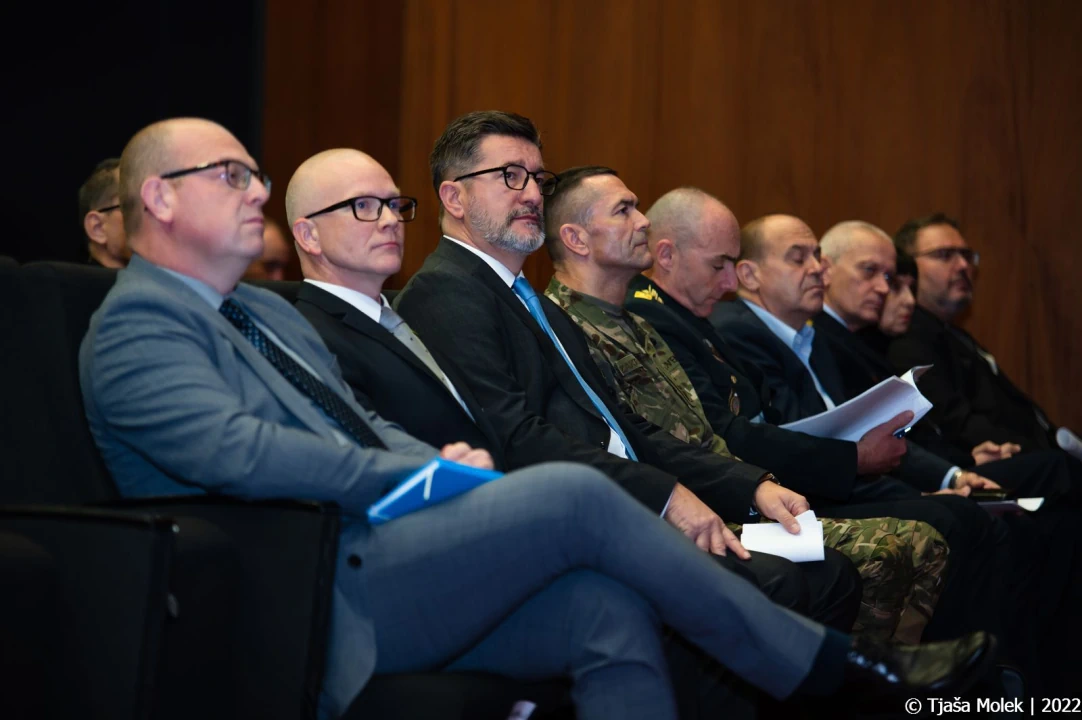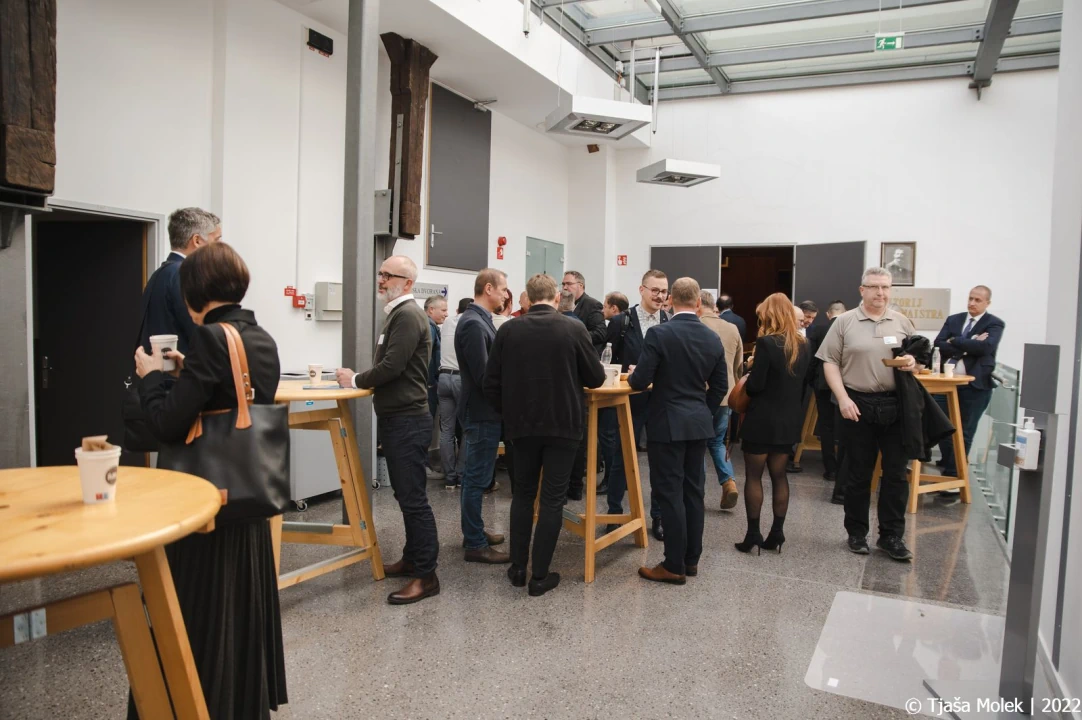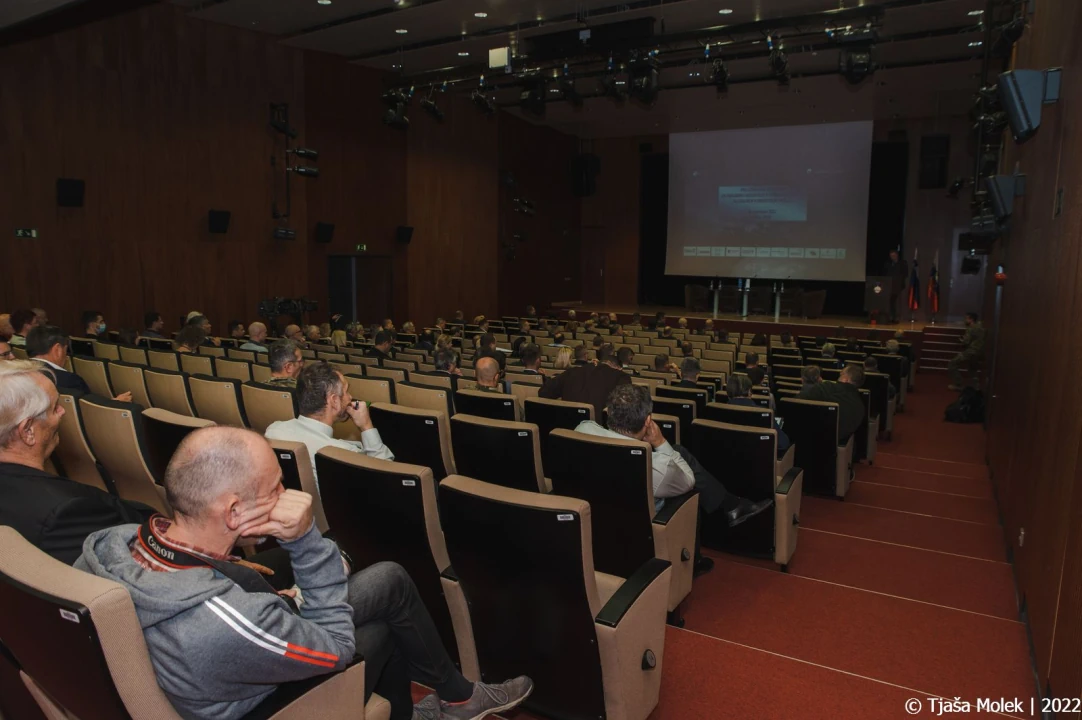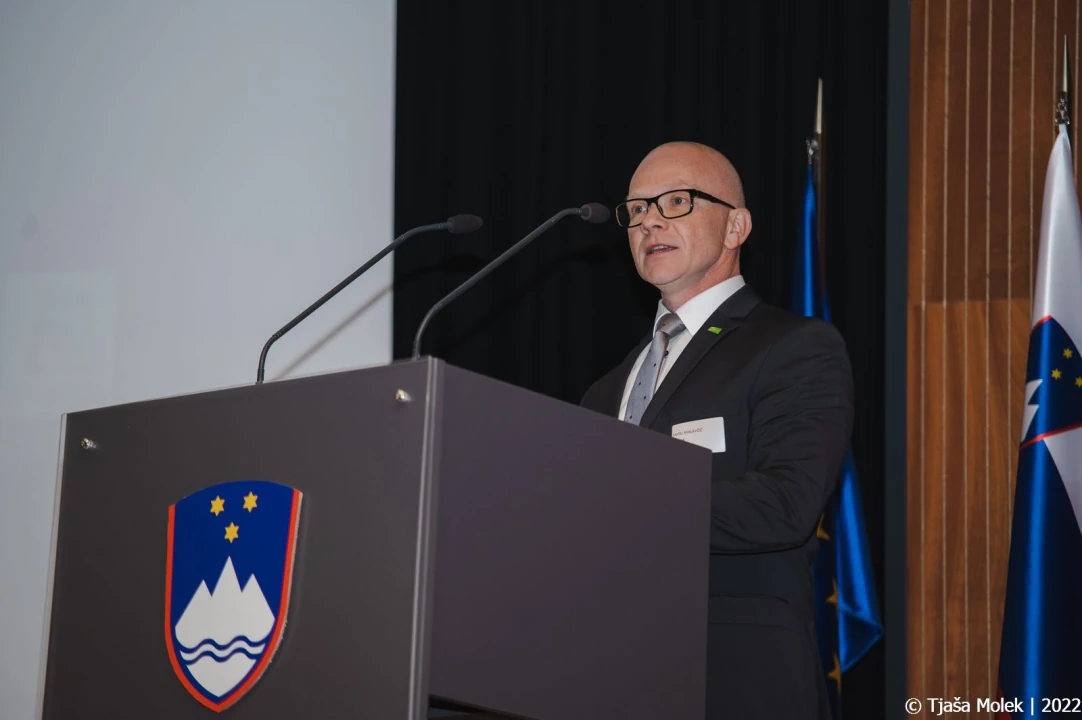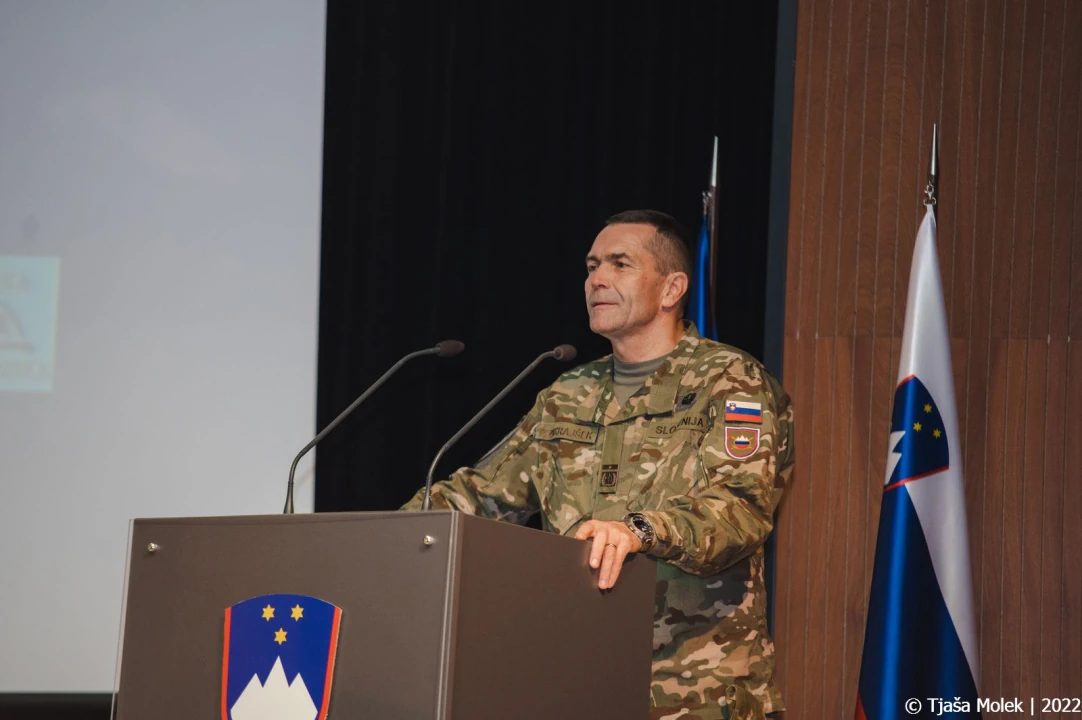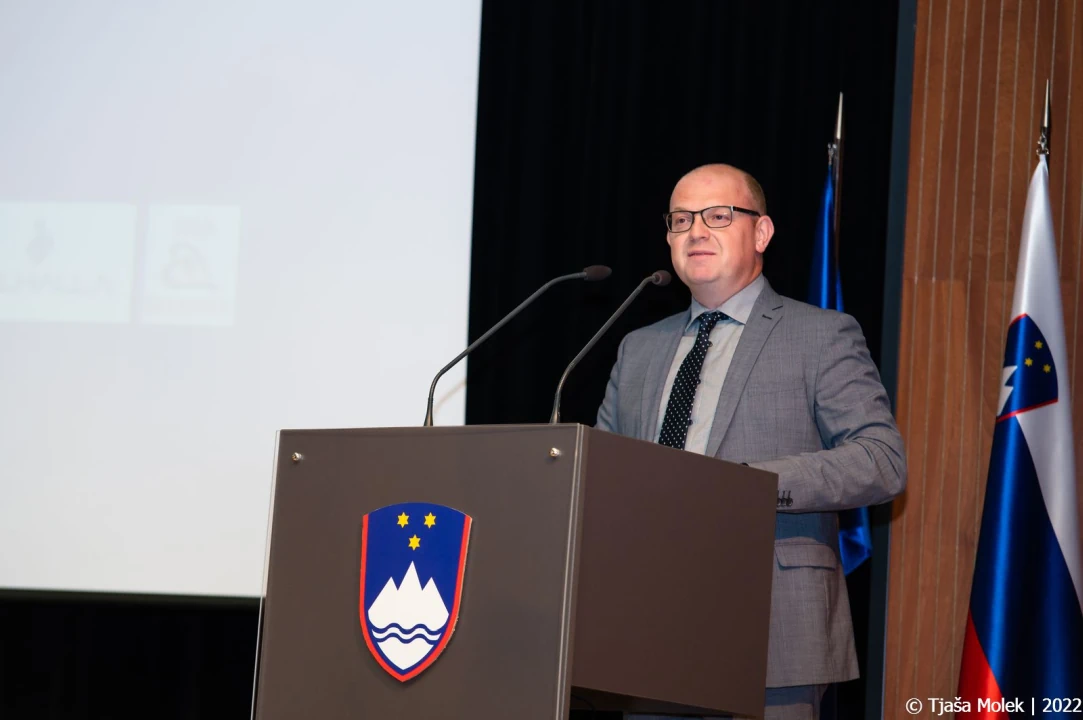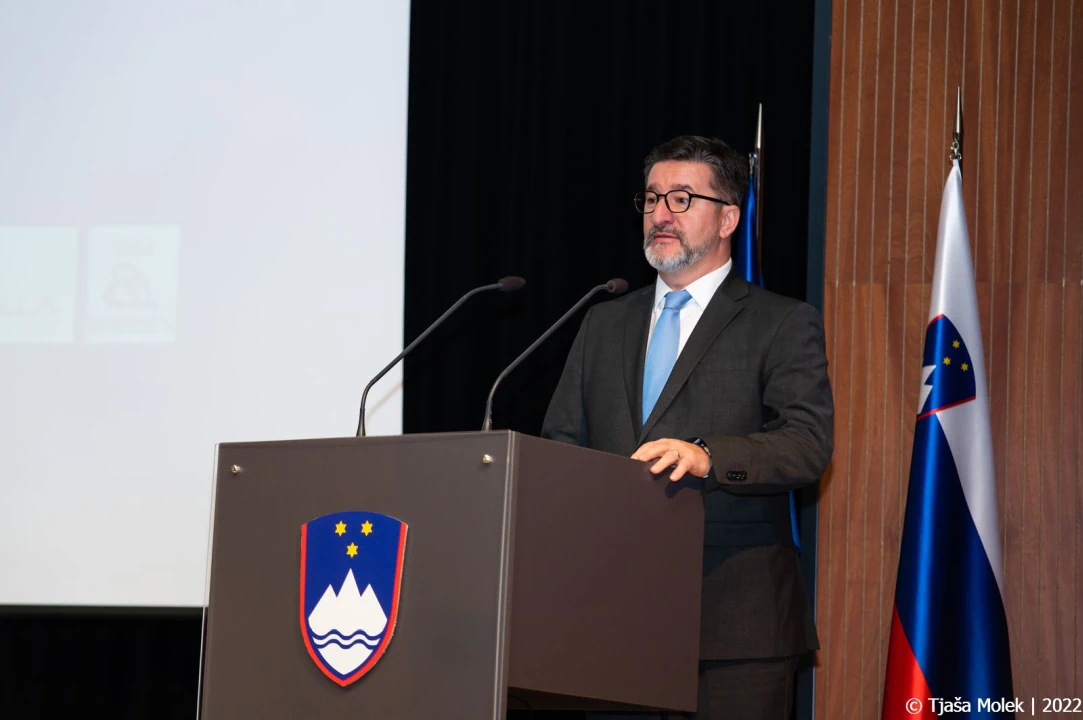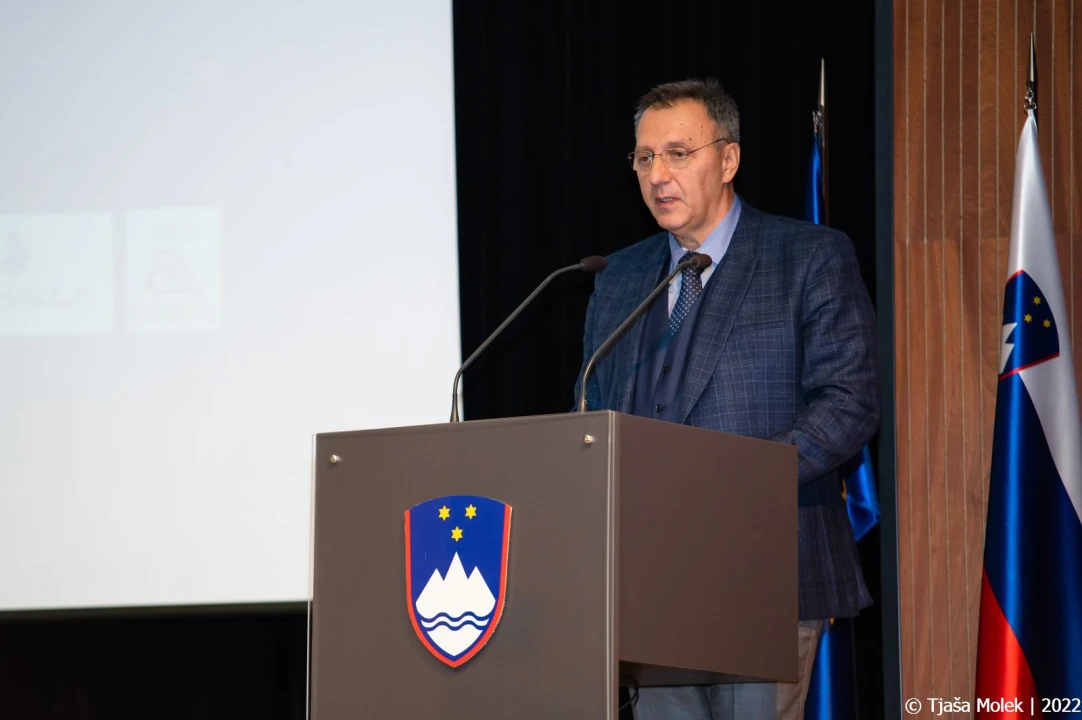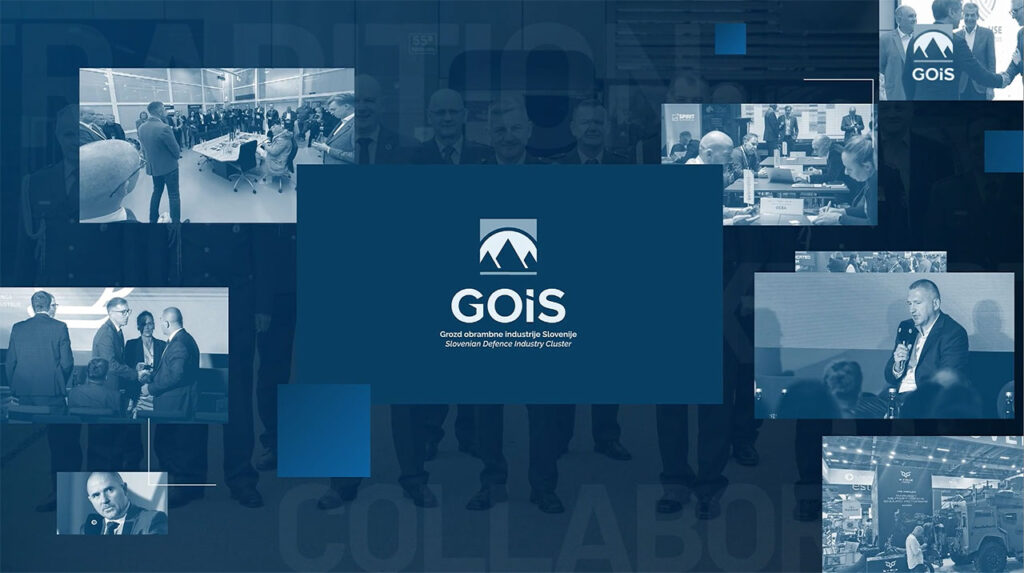Press Release Following the Conference of the Slovenian Defence Industry Cluster
On Monday, November 28, a conference of the Slovenian Defence Industry Cluster was held at the premises of the Maribor Cadet School, where representatives of state and research organizations, as well as successful entrepreneurs, discussed current trends, opportunities, and risks of the defence industry in the changing geopolitical, technological, and climatic environment.
Following the welcome address by the host, Brigadier Peter Zakrajšek, Commander of the Centre for Military Schools, and the organizer, Matej Miklavčič, President of GOIS, the conference participants were addressed by MSc. Željko Kralj, Acting Director-General of the Logistics Directorate at the Ministry of Defence, Dr. Branko Lobnikar, State Secretary at the Ministry of Interior, and Dr. Klemen Grošelj, Member of the European Parliament.
The world and the geopolitical landscape are changing very rapidly, and the defence industry must adapt quickly to this trend. The Slovenian defence industry is becoming an increasingly dynamic and recognized economic sector, following development challenges and gaining broader social recognition. It is one of the driving forces of high-tech development in various fields of application and today confidently positions itself within a broad research, development, and innovation spectrum, emphasized MSc. Željko Kralj, who addressed the attendees on behalf of the Ministry of Defence.
The Slovenian Defence Industry Cluster strives to strengthen the competitiveness of Slovenian companies in the fields of defence, protection, and security, and to foster cooperation with relevant institutions. As emphasized by Matej Miklavčič, President of the GOIS Supervisory Board, Slovenian companies in the sector, the state, and other stakeholders should strengthen ties in light of the changed security landscape in Europe, and therefore he thanked the Ministry of Defence for its assistance in organizing and for the participation of representatives from the present departments at today’s conference, which undoubtedly represents an important part of cooperation. GOIS unites 51 companies that achieve above-average added value per employee and are predominantly export-oriented. He added that the national defence industry is certainly an important factor in strategically ensuring the defence capabilities of any sovereign state. GOIS has a cooperation program signed with the Ministry of Defence dating back to 2011, which serves as the basis for multi-year joint cooperation and the preparation and implementation of an annual plan between both stakeholders.
Kralj repeatedly emphasized a strong commitment to continued excellent cooperation with the Slovenian Defence Industry Cluster and assessed today’s conference as one of the foundations for a robust partnership. He added that in the next two years, the Ministry of Defence will allocate substantial funds for the modernization of the Slovenian Armed Forces, infrastructure, special projects under the Investment Act, and specifically for research and development projects of the defence industry. The European Union is also aware of the importance of modern defence systems and allocates significant financial resources for joint research and development projects in this area. Thus, for the period 2021-2027, the EU is allocating 7.9 billion euros for this purpose. According to Kralj, Slovenian companies are among the most successful in applying for these funds, as in 2021, as many as 78% of the submitted European Defence Fund projects with Slovenian participation were approved for (co-)financing. He added that the Ministry of Defence recognizes the importance of the defence industry’s involvement in all segments, which is particularly crucial from the perspective of self-sufficiency and self-reliance. He emphasized that we are capable of producing many products ourselves, which will require “even more intensive cooperation and integration into development and product cells that will be able to meet the challenges of intensified international competition” in the future.
Lobnikar spoke about the Ministry of Interior’s perspectives on current issues in the defence industry. “We are convinced that through the exchange of knowledge, such as today’s meeting, technology testing, and other forms of cooperation, we can mutually help each other on the path to a common goal – which is to always be better,” Lobnikar emphasized. He stated that the Ministry of Interior is aware that changes in the modern global world are the only constant and that providers and users must adapt to the market daily. “Therefore, in the future, we also wish for continuous information, both on new opportunities and on the challenges that our potential providers face. This way, we will also effectively plan public procurements and shape our expectations,” Lobnikar concluded. Both Kralj and Lobnikar emphasized that both departments, among other things, offer a reference testing environment that companies can use by agreement.
Member of the European Parliament, Dr. Grošelj, spoke about technological and defence trends in the changing geopolitical environment and emphasized the importance of investments in research and development, which can strengthen the competitiveness of the defence industry: “All countries and industries that are somehow most advanced in this field show that it is not just a question of military procurements as such, but primarily a question of research and development. That is to say, it is crucial – and we must emphasize this – to invest in research and development.” Grošelj also pointed out that major changes are taking place in Europe, as there is also a process of transformation of the European defence industry, which is linked to the process of forming common European defence capabilities. “Strong clusters are being formed that will cooperate with each other.” He added that the state will play a key role in the Slovenian context and in processes within Slovenia. “The defence industry and the state will have to work hand in hand in this regard,” he emphasized.
Four panels then took place at the conference, where guests presented the future needs and planned investments of Slovenia’s armed and security forces, how the Slovenian defence, protection, and security industry can participate in various national and European projects, what the technological trends are, and how the banking sector supports such companies in this regard.
On the first panel, discussions on investments to strengthen Slovenian defence, protection, security, and rescue involved Brigadier Anže Rode, Chief of Staff of the Slovenian Armed Forces General Staff, MSc. Željko Kralj, Acting Director-General of the Logistics Directorate at the Ministry of Defence (MORS), Bojan Bučinel, Acting Director-General of the Logistics Directorate at the Ministry of Interior (MNZ), and Darko Podgornik from the General Police Directorate.
The second panel, which focused on promoting RDI, the involvement and cooperation of Slovenian stakeholders in national, EU, and NATO defence programs, hosted Dr. Larisa Pograjc, Head of the Department for Military Technology, Research, and Development at the Ministry of Defence (MORS), Colonel Robert Šipec, Head of the Equipment Sector at the Ministry of Defence (MORS), Dr. Tine Tomažič, Technical Director of Pipistrel, and Primož Peterca, Director of Guardiaris.
On the third panel, discussions on the potentials and threats of new technologies in the defence industry involved Dr. Vlado Stankovski, Professor at the Faculty of Computer and Information Science, Marko Peljhan, Director of C-Astral, Milan Gabor, Director of Viris, and Andrej Košiček, Product Manager at Arctur.
The fourth panel focused on the challenges of doing business with banks in the defence industry and, alongside representatives from Gorenjska Bank, hosted MSc. Aleš Nanut and Slađana Mlađenović from the Department for Defence Industry and Trade in Defence Products at the Ministry of Defence (MORS).
The conference undoubtedly offered many answers to questions concerning the defence industry and presented an excellent opportunity for the mutual sharing of knowledge, experience, and best practices among state bodies, research organizations, and the economy.
The conference, which was free for GOIS members, was sponsored by companies Dat-Con, Izop-K, Comark, SkyLabs, Kompas Telekomunikacije, Guardiaris, Valhalla Turrets, Trimpeks, PannaPlus, Armas, and Vina Šerbinek.
